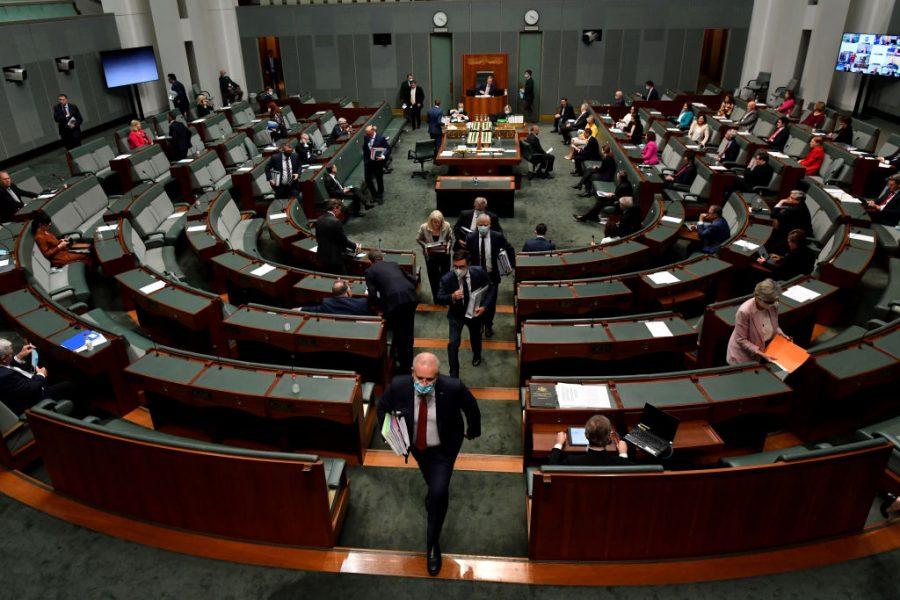
The recently published annual report of the Parliamentary Joint Committee on Intelligence and Security (PJCIS) reveals mounting resourcing pressures on the committee’s ability to carry out its duties as well as uncertainty about its legislative future.
According to the report:
The workload of the Committee continues to rise substantially, yet the Intelligence Services Act 2001 remains unchanged. We look forward to a review of the legislation that considers the role, powers and resources invested in the Committee. This review would follow the 2017 Independent Intelligence Review by [Michael] L’Estrange and [Stephen] Merchant which recommended a variety of amendments to appropriately equip the Committee for its future work.
The PJCIS was established pursuant to section 28 of the Intelligence Services Act. The committee’s functions include providing oversight of Australian intelligence agencies by reviewing their administration and expenditure, reviewing national security bills introduced to parliament, and ensuring national security legislation remains necessary, proportionate and effective by conducting statutory reviews.
However, the committee’s powers do not extend to reviewing the intelligence-gathering and -assessment priorities of Australia’s intelligence agencies; nor does it have the power to initiate its own inquiries. In effect, the PJCIS is hamstrung in comparison to similar committees within our Five Eyes counterparts which have much wider oversight remits.
The 2017 independent intelligence review made several recommendations relating to the future of the PJCIS. These included making amendments to legislation to expand the committee’s oversight role to apply to all 10 agencies of the national intelligence community; enabling the committee to request the Inspector-General of Intelligence and Security (IGIS) to conduct an inquiry into the legality and propriety of particular operational activities of the agencies; allowing the committee to initiate its own inquiries into the administration and expenditure of the agencies as well as proposed or existing provisions in counterterrorism and national security laws, and to review all such expiring legislation; enabling the committee to ask the Independent National Security Legislation Monitor to provide the findings of its inquiries into existing legislation at the same time as it provides such reports to the responsible minister; and requiring the committee to be regularly briefed by the director-general of the Office of National Intelligence, and separately by the IGIS.
The PJCIS annual report notes the recommendations were accepted by then prime minister Malcolm Turnbull and parliament passed legislation enacting a number of them, but three years on the government has yet to introduce any bill to enact the recommendations related to changing the oversight role and powers of the committee.
Perhaps the hold-up is due to the delay in the public release of Dennis Richardson’s review of the legal framework governing the national intelligence community, which was tasked after the release of the 2017 review with examining the effectiveness of the legislative framework and making findings and recommendations for reform. One of its key terms of reference was examining improvements that could be made to ensure that the legislative framework provides for accountability and oversight that is transparent and as consistent across the intelligence agencies as is practicably feasible.
In a submission to the Richardson review, ASPI’s Anthony Bergin and I made a number of recommendations, including strengthening the PJCIS’s legislative powers by widening its remit to include the ability to analyse agencies’ operations and conduct its own inquiries.
The review provided classified and unclassified reports to the government late last year. However, it has not yet been publicly released. The release of the review will give direction to the reforms required of the legal framework governing the intelligence agencies and the PJCIS.
The concerns raised in the committee’s annual report, and the criticism of the failure of the government to enact recommendations from the 2017 review in relation to the IGIS, relate to key mechanisms in the oversight and accountability of the national intelligence community.
If strong oversight and accountability are important to give the Australian public confidence that our intelligence and security agencies are not only safeguarding our nation’s security, but do so respecting the rights and liberties of all Australians, appropriately equipping the PJCIS for future work is essential. Any further delay in the release of the Richardson review would be unacceptable and smack of government ineptness.